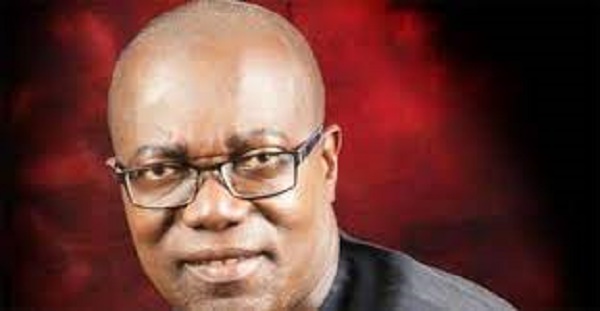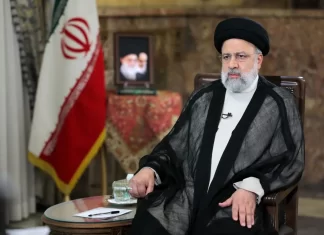Remarkably, in virtually every part of the Nigerian landscape, Ndigbo have embraced the challenges of development by their active participation in the social, political and economic affairs of wherever they find themselves.
By Nick Opara-Ndudu
In the past few weeks, I have taken time to reflect on the fate of the Igbos in the Nigerian state and have nothing but utmost concern for the place of Ndigbo in the Nigerian project. The largely regrettable and unfolding scenarios of multiple betrayals in the processes of nominating presidential flag bearers for the two major parties, the Peoples Democratic Party (PDP) and the All Progressives Congress ( APC), leave the vast majority of Ndigbo in consternation and bewilderment and, certainly, with an overwhelming feeling of dejection and rejection.
For those of us from this ethnic stock who still believe in, and hold dearly to the promises and prospects of a united Nigeria, the shocking occurrences of the past few weeks and months leave us in an untidy place. And the inherent contradictions which have been so amply been amplified leave us in a sorry state of stupor, if not bewilderment. And yet we must soldier on, undeterred in our commitment to the emergence of a fair, just and prosperous Nigeria.
In the past seven years of the Buhari administration, Ndigbo have witnessed and lived with the worst variants of exclusion and marginalisation ever recorded in the annals of our nation’s history. And there have been no better expression of the fact that Ndigbo count for so little in Nigeria’s socio-political calculus than the manifest denials that they continue to suffer.
Whilst it is generally acknowledged that Igbos are major contributors to the Nigerian project, they continue to be denied the benefits of their shared citizenship of this great nation and appear to be at the receiving end of the injustices bedeviling the country.
Remarkably, in virtually every part of the Nigerian landscape, Ndigbo have embraced the challenges of development by their active participation in the social, political and economic affairs of wherever they find themselves. And it is widely acknowledged that they are the second largest contributors (after the indigenous ethnic stock) to the economic development of practically every state in the federal republic. Igbos commit their energy and sundry resources to the development of their host communities thousands of miles away from their homeland. And yet these contributions are hardly reckoned with.
As the 2023 elections approach, there has been, justifiably, a groundswell of opinions in support of the emergence of a Nigerian president of south East extraction. This is on account of the fact that this part of the country, save for the six months interregnum of General Aguiyi Ironsi in 1966, has not had the opportunity of presiding over the affairs of the country.
In a nation whose diversity was without doubt a source of challenges, power shift or rotation has come to be recognized as a veritable tool to ensure a sense of balance and harmonious co-existence. Unfortunately, the pursuit of this elixir for national unity and cohesion in the current epoch has left a lot to be desired. In its wake, it has regrettably reinforced the pervasive feeling of wanton denial and exclusion amongst Ndigbo. And even amongst the proponents of the tenets of fairness, equity and justice, the resulting contradictions are so glaring.
While it is understood that the presidency of Nigeria should rotate to southern Nigeria in affirmation of the principle of rotation, the contradictions and double standards even within southern Nigeria, have been quite unsettling. Otherwise, how do you explain the involvement of key southern politicians in the quest for the nation’s presidency when their sections of the south have indeed occupied the presidency in the past? Is it not a manifest contradiction and a case of crass opportunism that political gladiators from the South West and South South Nigeria sought to dominate the political space in a manner that undermined the goals of equity, justice and fairness, which ends dictated that the South East presidential project was deserving of their support?
It is instructive to note that at the advent of the current civilian dispensation in 1999, the South East was the sacrificial lamb in the emergence of the South West presidency of Olusegun Obasanjo. It would appear that the sacrifices made by Chief Ogbonnaya Onu and Okwadike Igboukwu, H.E. Dr Chukwuemeka Ezeife, the presidential flag bearers of the All Progressives Party(APP) and Alliance for Democracy (AD), in ushering in the Obasanjo presidency, have gone largely unacknowledged.
READ ALSO: Yoruba group urges Buhari to reject Osinbajo as successor for not being a Muslim
At that time, when a sacrificial attitude and true patriotism were needed to assuage the deprivations suffered by the South West following the aborted Moshood Abiola presidency, the South East made the supreme sacrifice in the search for a just and equitable Nigeria by sacrificing the political ambitions of these two eminent sons of theirs that we may usher in a civilian democratic dispensation built on a foundation of equity and social justice.
In the aftermath of the just concluded PDP primaries, we seem to have been consumed by an understandable feeling of betrayal coming from diverse quarters. Prominent among these voices is the Rivers State Governor, Barrister Ezenwo Nyesom Wike, who is aggrieved that he was betrayed by his brother governors from Southern Nigeria, and yet spares no thought to the fact that his entry into the race for his party’s presidential nomination process was a clear contradiction and betrayal of his South East brethren whose turn it was, realistically speaking, to occupy the seat of presidential power in the spirit of justice, fairness and equity.
And while he was in the race, Governor Wike, through his utterances, dealt the most devastating blows to the leading lights of the South East quest for the nation’s presidency. Even when he could have effectively delivered his messages without attacking personalities, he was needlessly combative and adversarial in his approach. If one may ask, where lies his sense of southern solidarity and shared brotherhood when his campaign tore away at the very heart of the filial bond and relationship that should exist between him and his South East brethren? Whilst he earned the respect and admiration of a lot of people for his courage, in the end, his bravado, utterances and posture clearly undermined the much desired southern solidarity necessary for the push to rotate the presidency to the South.
Aside from Governor Wike, these regrettable contradictions also found expression in the quest by other southern political leaders such as Governor Udom Emmanuel, former Governor Ayo Fayose, etc. in their separate presidential runs.
Also, it was equally evident in the way South East governors and leaders openly supported aspirants from other regions whilst frustrating the efforts of their kith and kin in this regard. Otherwise, how do you rationalize the fact that an eminently qualified Igbo son and truly detribalised Nigerian like Senator Anyim Pius Anyim, a former Senate President and Secretary to the Government of the Federation, could only garner 14 votes!
The unfolding scenarios call for serious introspection, particularly as it concerns the South East governors and leading politicians in the PDP. Whilst at liberty to pursue their personal interests, the outcome of the PDP primaries is a clear testimony of their betrayal of the South East quest for presidency which they were morally bound to support. Their dismal performance in advancing the goals of the South East presidential project would forever remain a burden to their consciences and a permanent scar to their reputation.
And for PDP as a party, it beggars belief that they would jettison clear provisions in the party’s constitution on rotation/zoning by throwing open the contest for its presidential ticket. Luckily, there would appear to be a window to redress this injustice through the courts following the case instituted by a former Speaker of the Imo State House of Assembly, Barrister Ike C. Ibe. The sights of the entire Igbo race and, indeed, all well- meaning Nigerians interested in the collective search for a just, fair and equitable nation, are firmly fixed on the outcome of this case.
As I write, the same scenario is being re-enacted in the All Progressives Congress (APC). Yet again, notable politicians from the South West and South South regions of Nigeria are in the contest for the presidential nomination of the ruling party without any iota of regard and consideration for their South East brethren. If, in the end, the APC nominates a flag bearer from the North, it would be in flagrant disregard of the need to enhance social harmony and co-existence by having the presidency go back to the South after President Buhari’s two terms in office. However, any claim of betrayal by presidential contenders from the South West and South South would be largely discredited by their refusal to heed the counsel of leaders and citizens of conscience across the country to support the South East presidential project. As a popular maxim says, he who goes to equity must do so with clean hands.
Within APC and amongst the Igbos in the party, glaring cases of contradictions abound as the quest for the realization of a Nigerian president of South East extraction is being pursued. Otherwise, how does one rationalize the active involvement of leading lights of the party from the South East in championing the presidential aspirations of persons outside the South East? Charity, as they say, begins at home. And yet they find nothing wrong in their self-serving positions.
It is yet not too late for them to have a rethink of their positions and support any Southeastern presidential aspirant of their choice. Playing second fiddle, as would appear to be the case currently, would do incalculable harm to their reputation and standing in the South East. A stitch in time, saves nine.
In the fullness of time, all the political leaders from the South East who undermined the people’s quest for the presidency in the PDP would definitely be called to account for their stewardship. May the lessons of history, wisdom and common sense guide those in APC to do the needful and be spared the people’s wrath and judgement during the 2023 polls.
In the final analysis, for Ndigbo this season of betrayals provide a reason for introspection and a recalibration of their development agenda. All said, we should still be committed to the goal of a truly federal Nigeria. The feelings of rejection and dejection which come with the betrayal which they now suffer would challenge their belief in, and commitment to Project Nigeria. But we should persevere and not lose hope, convinced that the injustices that have become the imprimatur of our existence in Nigeria would ultimately provide the elixir for the momentum towards a true federation.
In that nation which would yet emerge, the rest of Nigeria would come to terms with who we are while also acknowledging the true value of our monumental contributions to the growth and development of the nation.
The current season of anomie provides an historic opportunity for Ndigbo to look inwards and evolve a development agenda that would re-direct a significant proportion of our resources to the development of our homeland.
Ndigbo have all it takes, with the right leadership, to birth a peaceful and truly prosperous homeland with abundant opportunities for productive engagement of our people and, indeed, our brethren from other parts of this potentially great nation, Nigeria. Our continued marginalisation and exclusion in Project Nigeria, whilst obviously challenging, should renew our determination to excel.
In this season of betrayals, history beckons on us not to despair. And in the deprivations we suffer, without justification, Nigeria’s collective humanity is diminished. It is well.
- Nick Opara-Ndudu, a Chartered Accountant and former banker, was at various times Chief Economic Adviser to Imo State Government and honourable commissioner. He writes from Emekuku, Owerri, Imo State.











